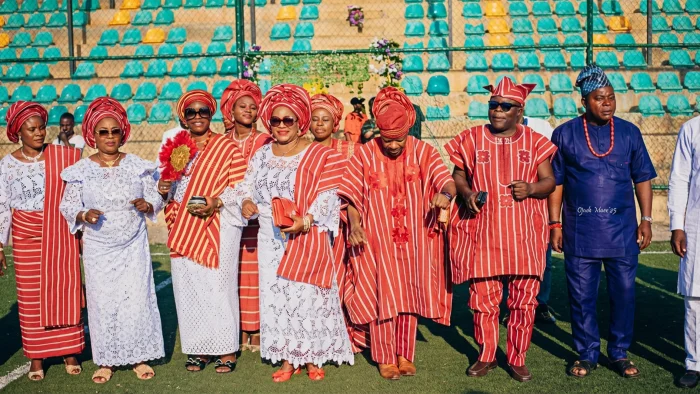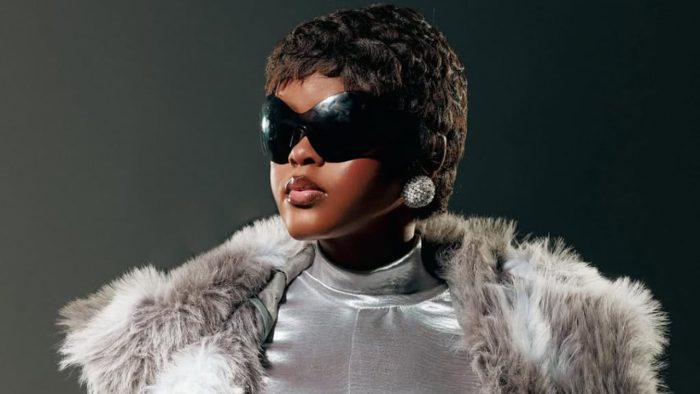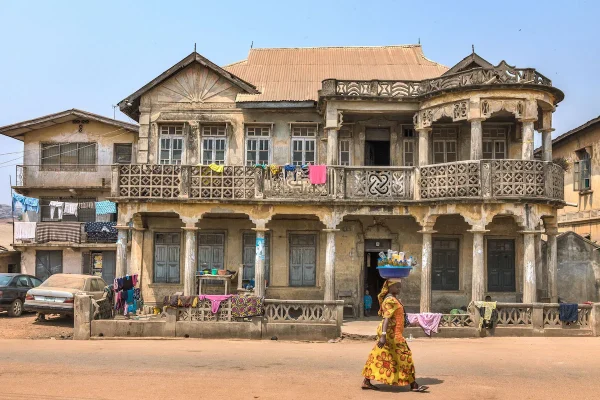
Three things came to mind the first time I watched the first installment of Samo Agbero’s If An Agbero Had a Diary: deft use of the Yoruba Language and its street slang, the hilarious names given to the people who populate Samo’s fictitious garaji, and the uncanny portrayal of local motor park politics.
[ad]
The person behind this apt but sometimes hyperbolic portrayal of one of the major fixtures of motor parks in southwest Nigeria could only be a Yoruba. Perhaps someone who was himself a street king.
But Franklyn Ikemefune, the man behind Samo Agbero, was not even Yoruba. But growing up in Ibadan, in southwest Nigeria, was enough to not only learn to speak the language with an accent that masks his Igbo heritage but also to imbibe the culture of the people and gain the sensibilities of an average Yoruba tout.
Neighbourhood football matches were instrumental to him immersing himself in Yoruba street culture.
Moulded in Molete
His family lived in Molete, in the heart of Ibadan. For decades, the neighbourhood was home to Chief Lamidi Adedibu, a politician that never shied away from playing dirty. Unlettered Adedibu was not a political pushover: he installed and dethroned governors, mostly with generous doses of underhand tactics. But to many who benefitted from his much-touted kindness – including his many foot soldiers – Molete, where he lived, was a Mecca.
Being good at footie endeared the first child of a school principal to many of the thugs. In the days when such an association mostly existed as an errant imagination, Ikemefune’s street football credibility made it easier to break such a barrier. Still, he had to be sneaky about it.
“There used to be a time when Molete was the headquarters of thuggery and gangsterism in the whole of the southwest,” Ikemefune told me. “I grew up around that area. I used to play with the guys – the thugs, the younger brothers of the thugs.”
View this post on Instagram
Ikemefune played football with some of Adedibu’s foot soldiers. It was not something his parents loved for the “buttie kid,” – Nigerian slang for children from middle and upper-class families who live sheltered lives. His parents preferred he buried himself in his book.
Running errands gave him escape from the sheltered confines of his family home into the open fields of Molete, where his skills earned him fame – immediately and later in life. “I internalised their mannerism: the way they spoke, the way they interacted, the way they came up with nicknames, the way they insulted themselves. I internalised those.”
His biggest influence, perhaps, was his father, who he said was “unbelievably popular” for his sense of humour. “My dad was the funniest person I’d ever met. If you think I’m funny, I wonder what you would’ve thought if you met my father. His sense of humour made him befriend people across social strata.
[ad]
“He was that great with relationships. Also very ‘giran’. He’ll raise both hands up and call me ‘Oluaye Vader’ while begging me to give him some of the noodles I made for myself.”
Building real characters
Samo is built on a real person “who made it out of the trenches of thuggery,” Ikemefune said.
Nicknamed in real life as Samora, the former thug lived next door to Ikemefune. Having left his old life behind, Samora got married and carried on with his life with the tenacity of a new convert. In fact, he fashioned most of the 23 characters in the diary series after the people he played football with in Molete.

And some names given to his characters are oddly familiar. “I used to be intrigued by him,” Ikemefune said. “He used to conduct himself like a businessman. He had a wife and children. I used to look at him like, ‘how this guy take be thug?’ I used to be fascinated by that.”
[ad]
But Samo’s live-in-lover in the diary, Wosi, is not built on any character. But she was named after a real person, who Ikemefune first saw at an owambe (Yoruba slang for party). Ikemefune confessed to developing an instant crush on the ‘rich, classy, beautiful woman’. It was only fitting that she is Samo’s lover.
“Whenever I started drafting the script for the agbero diary, I was looking for a befitting name for Samo’s wife. It just came – Wosi. I just wrote it down,” Ikemefune said.
Many fans of K1 the Ultimate, one of the most popular fuji artists in southwest Nigeria, are familiar with the name Elele. In one of his songs, K1 the Ultimate sang about the power of Rafiu Akanbi Elele, a Lagos socialite, and why he was above disrespect.
Ikemefune may not have known the Elele the fuji artist sang about, the Elele that lives and breathes in the contrived world of Samo Agbero’s diary is based on a real person. Like in the diary, “Elele is now a senior thug,” Ikemefune said.
Wearing a few hats
Apart from giving life to Samo Agbero, Ikemefune wears a few more hats. He is one of the founders of WeTalkSound, a platform touted to be Nigeria’s biggest online music community, and a content creator. When he is dropping bars on beats, he wears his Vader the Wildcard hat. He was listed among new artists that could shape the future of Nigerian Hip Hop in 2021. He is also one-third of The Comrade collective, alongside Jibola Grey and Oli Ekun.
[ad]
But it is Samo that has introduced him to an audience varied in demographic.
“Crazy that I am intensely following this Diary,” Sam Hart, the Director-General of the Abia State Marketing and Quality Management Agency wrote on Twitter on February 4. I know all the characters and backstory. I know why Elele will remain in Area G. I am invested.”
With 22 diary sessions already in and multiple characters created to give him a semblance of archetypal garage tout in southwest Nigeria, Samo Agbero may remind you of late Gbenga Adeboye’s outrageously wild yet hilarious picaresque tales of Itu Baba Ita and Laisi Abesupinle.
Where the two creations of Adeboye were decidedly fiery area fathers, Samo Agbero is less confrontational but nonetheless a rebellious motor park overlord who does back down from a fight, and more importantly, he is amenable to innovations. But Samo is quick to remind you that “We rise by beating others.” And he is not averse to paying back his enemies – perceived or real – in their coin.

Like the legendary Adeboye, humour is an ever-present trope in Samo’s art. His playful yet serious critique of what is wrong with Nigeria, its millions of youths and leaders, is evident in ‘You Garru Be Kiddin’ Me’.
[ad]
Samo Agbero’s world can expand. After all, this is a country where touts find political relevance and wield an enormous influence that could cripple the economy of a state.
Samo Agbero has economic importance for Ikemefne, and the popularity of the fictional street lord has been kind to Ikemefune’s pocket. He has Samo merchandise out on sale and has collaborated with some advertisers. By planting the Samo character in Oli Ekun’s skit, Ikemefune showed he already has a clear path to expanding Samo Agbero’s world. Only time will tell how big that world will be.
Between the time we had this interview and now, Samo Agbero series has simmered, maybe put to rest. But Ikemefune has been anything but resting. He has released a single in tribute to his Samo Agbero character, featured multiple songs, his work with budding entertainment collective The Comrades is taking off, and has done other skits, again with his affinity for Ibadan and Yoruba pop culture on display.
For now, Samo Agbero is in his own world and the legend of this fictional lovable overlord reigns in the minds of his fans.
[ad]








